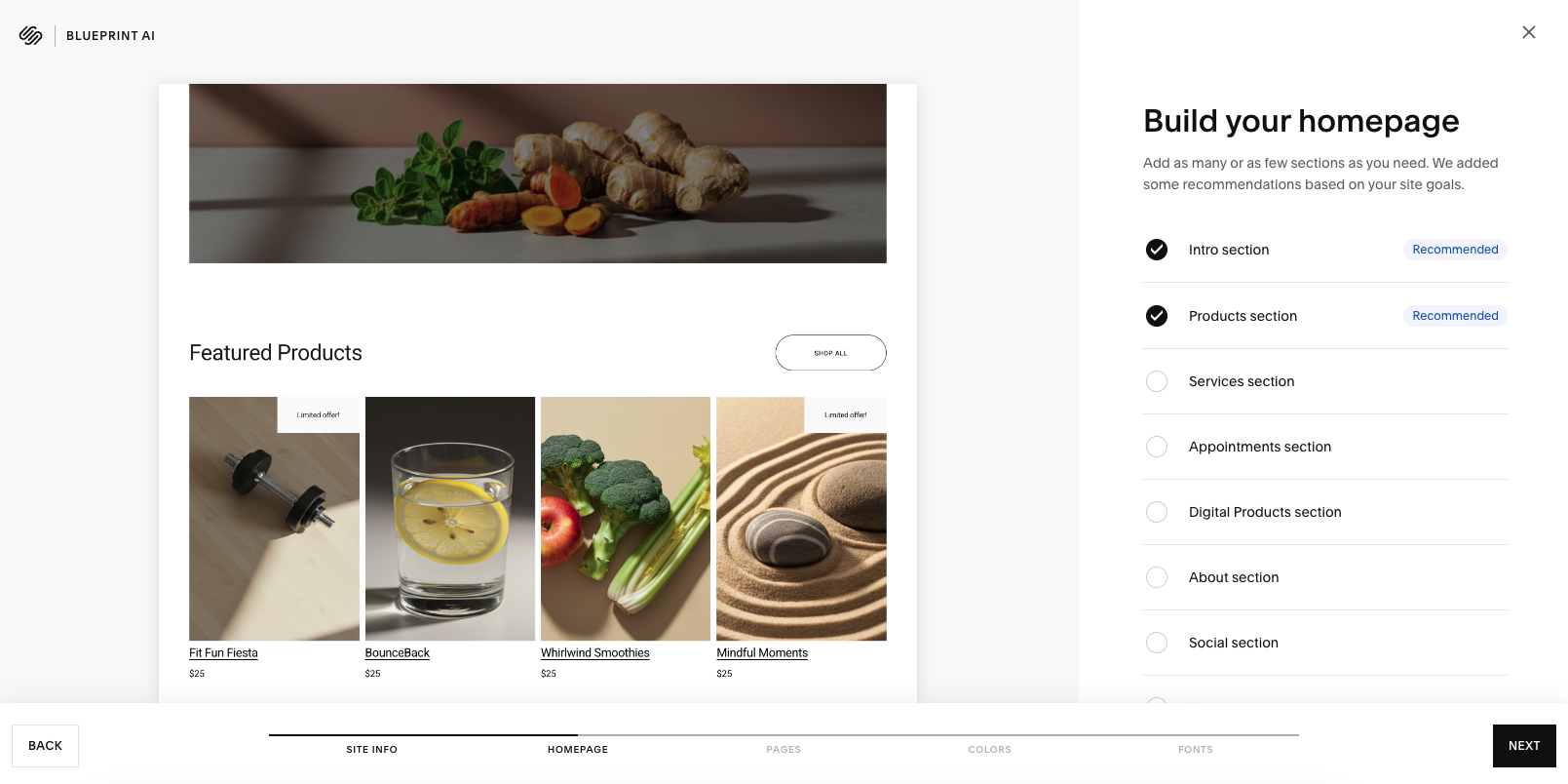How to launch an ecommerce store using AI
Get selling online faster than ever before by leveraging the power of AI

Ecommerce has never been more accessible, for better or worse. Thanks to AI and the best ecommerce platforms, you can now build, launch, and manage an online store without years of technical expertise or a massive upfront budget. These tools are transforming how we approach every aspect of ecommerce, from designing your storefront to managing inventory.
This is both good and bad. What used to take months of planning, building, and testing can now happen in days or even hours. AI can be applied at every stage, from speeding up website design to analyzing customer data in order to develop the best pricing strategy. We're not just talking about basic automation here.
If all of this has you feeling lost and confused, let us break down the best way to get an online store up and running with AI today. We'll explain how these AI tools work, which platforms can get you the best results, and pitfalls to avoid when treading these new waters.
Save 10% and start building your online store with Squarespace
With one of the best AI website builders available, you can now save 10% on your Squarespace subscription by using our exclusive code: TRADAR10. Simply apply the code at checkout to apply the discount.
Step 1: Pick an AI website builder
AI website builders use artificial intelligence to create professional websites through simple conversations or guided questionnaires. Instead of wrestling with templates and drag-and-drop components, you simply describe your business and watch a custom website take form.
AI website builders work in one of two ways. Some use a conversational interface where you chat with the AI about your business goals and preferences. Others guide you through multiple-choice questions about your industry, style preferences, and required features. Both types analyze your responses and generate a complete website from wireframes to content. For example:
- Squarespace Blueprint is one of the most intuitive options overall, best for creativity-focused online businesses. It creates websites in about five or six steps by understanding your brand's personality and suggesting designs, colors, and typography. It's included with all Squarespace plans, so you don't have to pay extra.
- Wix AI website builder guides you through the entire process using a conversational interface. You describe your business story. AI transforms it into a custom site with built-in business solutions for inventory tracking and event management. You also get many ongoing AI tools for content creation and image generation.
- 10Web focuses specifically on online stores, offering the most streamlined setup for products, inventory, and payments to help you start selling globally. It includes Google Cloud hosting, automated backups, and optimized checkout processes designed for maximum conversions.
- Hostinger’s AI website builder is one of the most affordable on the market. You start by answering a few questions and then let the AI create the website for you. The platform has also recently launched some helpful AI tools for online stores including an AI-powered product description generator.
AI website builders are great for ecommerce stores when you're starting out. They can quickly work around complex problems like payment processing and inventory management to get you up and running in no time at all. More sophisticated tools can generate product categories, set up shipping zones, and even create promotional banners.
But, these tools do have their limitations as you grow. Customization can be restricted compared to traditional website builders. You might find yourself constrained by the AI's design choices, especially if you have very specific style requirements. And the more you rely on AI for core functions like inventory tracking and demand forecasting, the greater the chances of loss if there's an error.
Sign up to the TechRadar Pro newsletter to get all the top news, opinion, features and guidance your business needs to succeed!
Step 2: Use different AI tools to research and source products
Even before ChatGPT and Gemini came into play, corporations have been using AI tools with complex algorithms to make sense of large amounts of customer data. This has helped them create demand forecasts, optimize costs, improve supply chain management — you name it.
But now, it's easier than ever to get your hands on these advanced reporting tools. AI can transform product research from guesswork into data science. You can analyze millions of products across multiple platforms to identify trending items, profitable niches, and untapped opportunities that human researchers miss.
Market research becomes incredibly powerful when AI handles the data crunching. Tools can aggregate information from competitor websites, social media, and suppliers to provide all the competitive analysis you need. This process, which traditionally took weeks, now happens in minutes thanks to near-instantaneous data processing.
Eliotron is a great example of an AI product research tool. It analyzes millions of listings to highlight profitable opportunities tailored to your specific niche. You get real-time access to competitor sales data, revealing their winning products so you can avoid costly marketing and inventory mistakes.
Then there are tools like Insight7, which can analyze videos, calls, and interviews to capture consumer sentiment. You learn about your buyers' pain points, desires, and behavior to inform product selection and improvements. Meanwhile, Quantilope uses automated A/B testing to compare pricing strategies, revealing which approach works best with your target audience. Again, the speed advantage cannot be overstated even if it comes with some additional risks.
Step 3: Leverage predictive AI to upload and manage inventory
When you build an online store, creating and managing product descriptions and images is one of the most tedious and time-taking things you have to do. Luckily, AI tools like Hostinger's Product Information Generator can create detailed product descriptions by repurposing existing data from different sources. You can also use AI tools to make these descriptions SEO-friendly, making them easier to discover.
With tools like Claid AI and Photoroom, good quality product photography is nowhere near as challenging as it used to be. These tools can generate product images from different angles and backgrounds, with options to adjust lighting and resolution. AI website builders like Squarespace Blueprint will populate your AI generated store with AI generated images. Although most of these will likely need replacing, they can serve as a great source of inspiration for product styling.
Speaking of inventory, AI can offer predictive insights that prevent stockouts and overstock situations. You can optimize stock levels based on demand forecasts that draw on years of historical data.
For example, Cin7 offers AI-powered inventory management that analyzes sales patterns, seasonal trends, and market conditions to predict demand. It automatically suggests reorder points and quantities, helping you maintain stock levels while minimizing carrying costs.
If you want, automated workflows can take charge of your entire inventory process. AI can update product listings when stock levels change, generate purchase orders when items reach reorder points, and even communicate with suppliers to expedite deliveries.
Launching an online store with AI: Summary
AI has fundamentally changed the ecommerce medium, making it possible for anyone to launch a professional online store without any of the expertise or investment. This means more opportunities, but also way more competition.
The tools we've discussed just scratch the surface of AI's impact on ecommerce. As the technology continues to evolve, we can expect big things. Like marketing campaigns that run on autopilot. Or supply chains that require little to no intervention.
It's hard to say if this is a net positive for the ecommerce industry, or any other online business model for that matter. While it's exciting to see the rapid development in this space, we can't help but feel that the role to play for most of us is to simply react to what's happening, with little say in what the future will hold.

Ritoban Mukherjee is a tech and innovations journalist from West Bengal, India. These days, most of his work revolves around B2B software, such as AI website builders, VoIP platforms, and CRMs, among other things. He has also been published on Tom's Guide, Creative Bloq, IT Pro, Gizmodo, Quartz, and Mental Floss.
- Owain WilliamsB2B Editor, Website Builders & CRM
You must confirm your public display name before commenting
Please logout and then login again, you will then be prompted to enter your display name.
